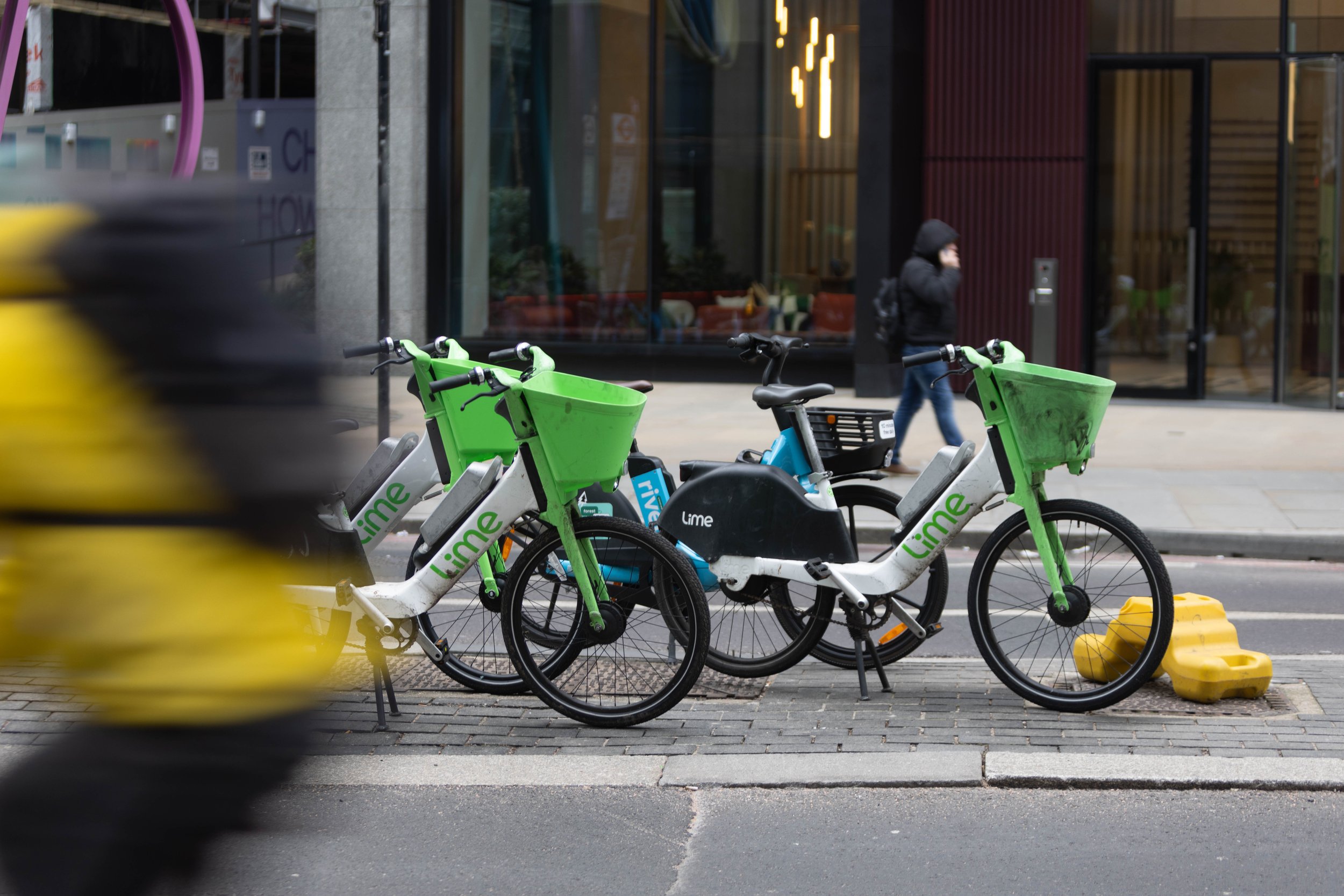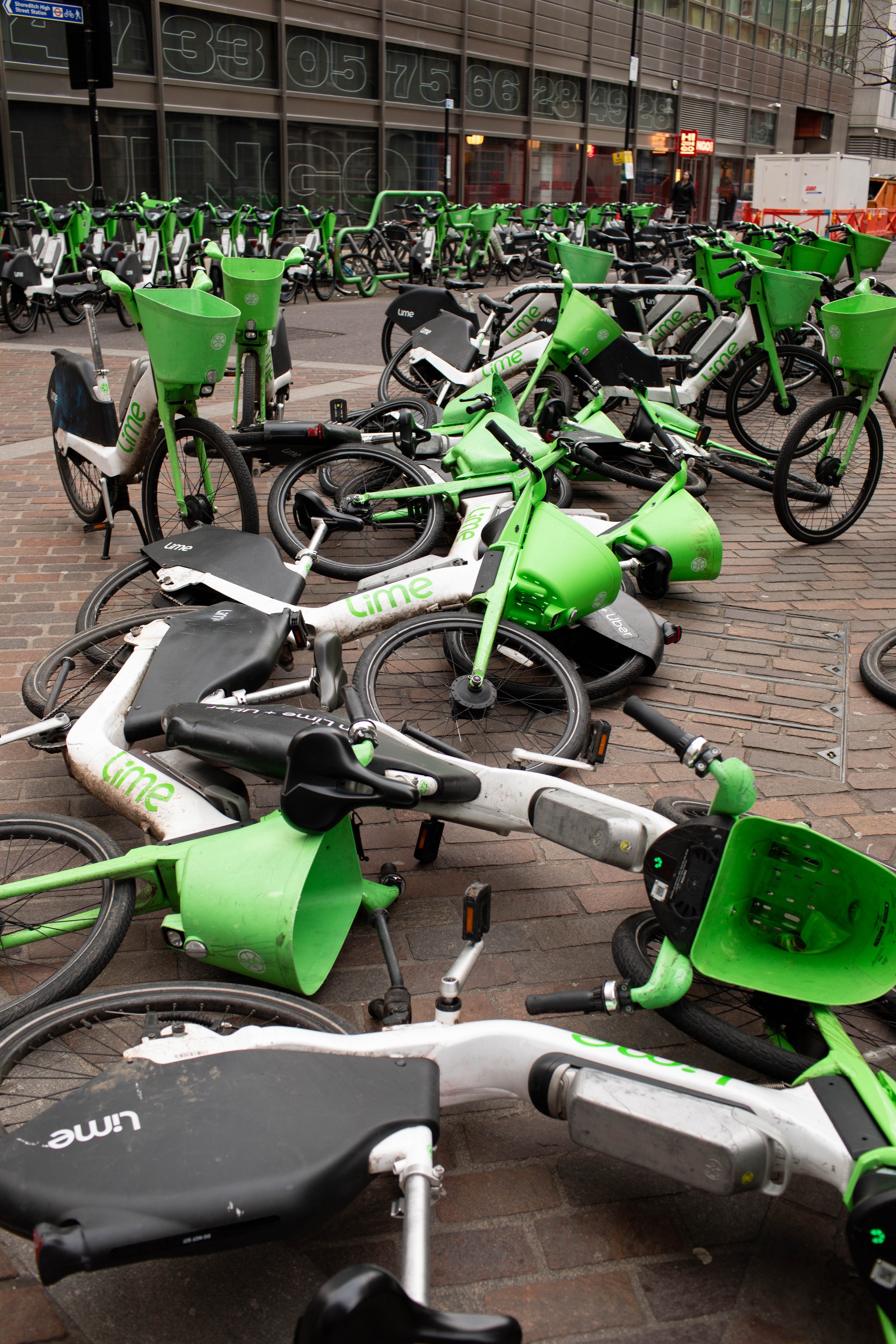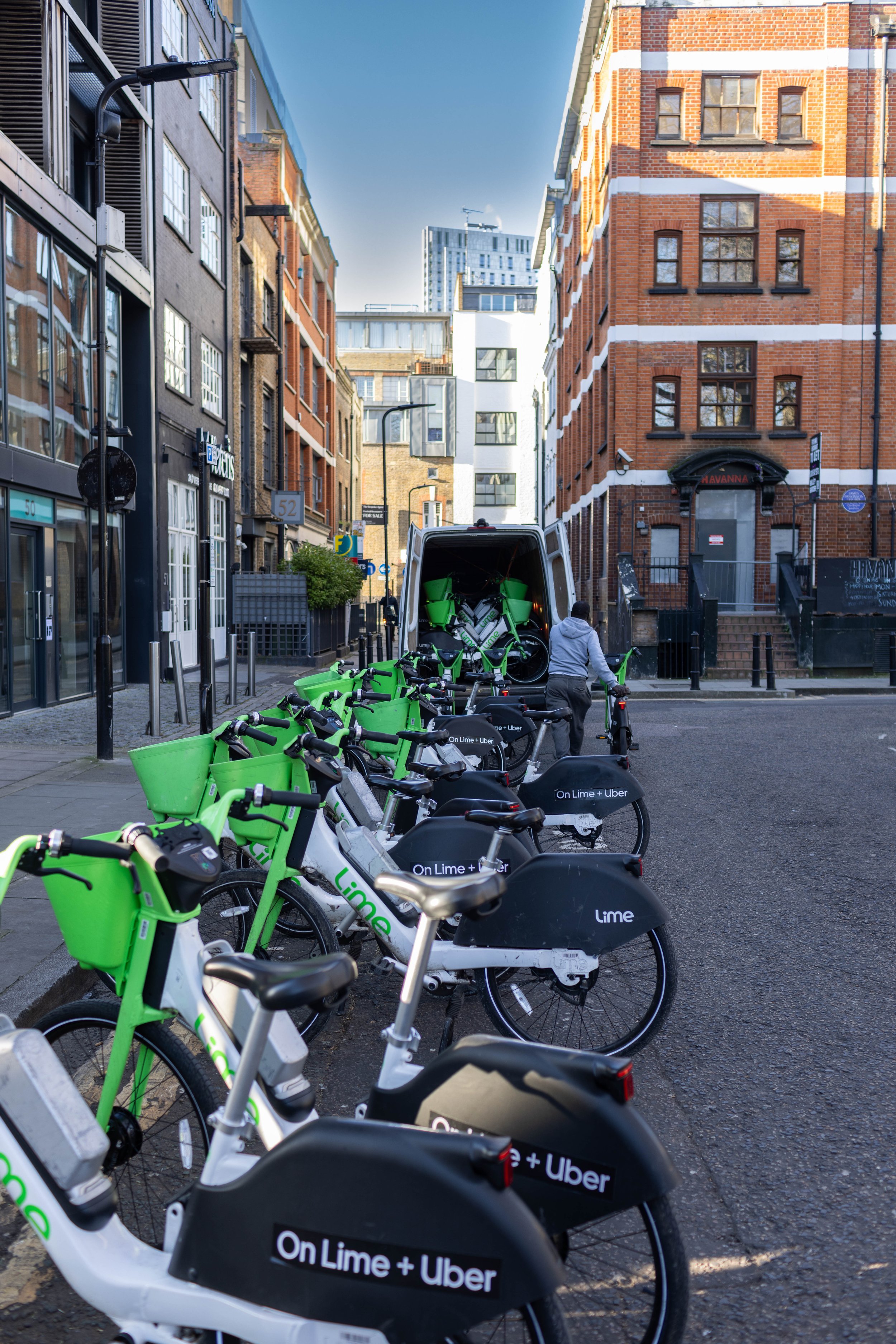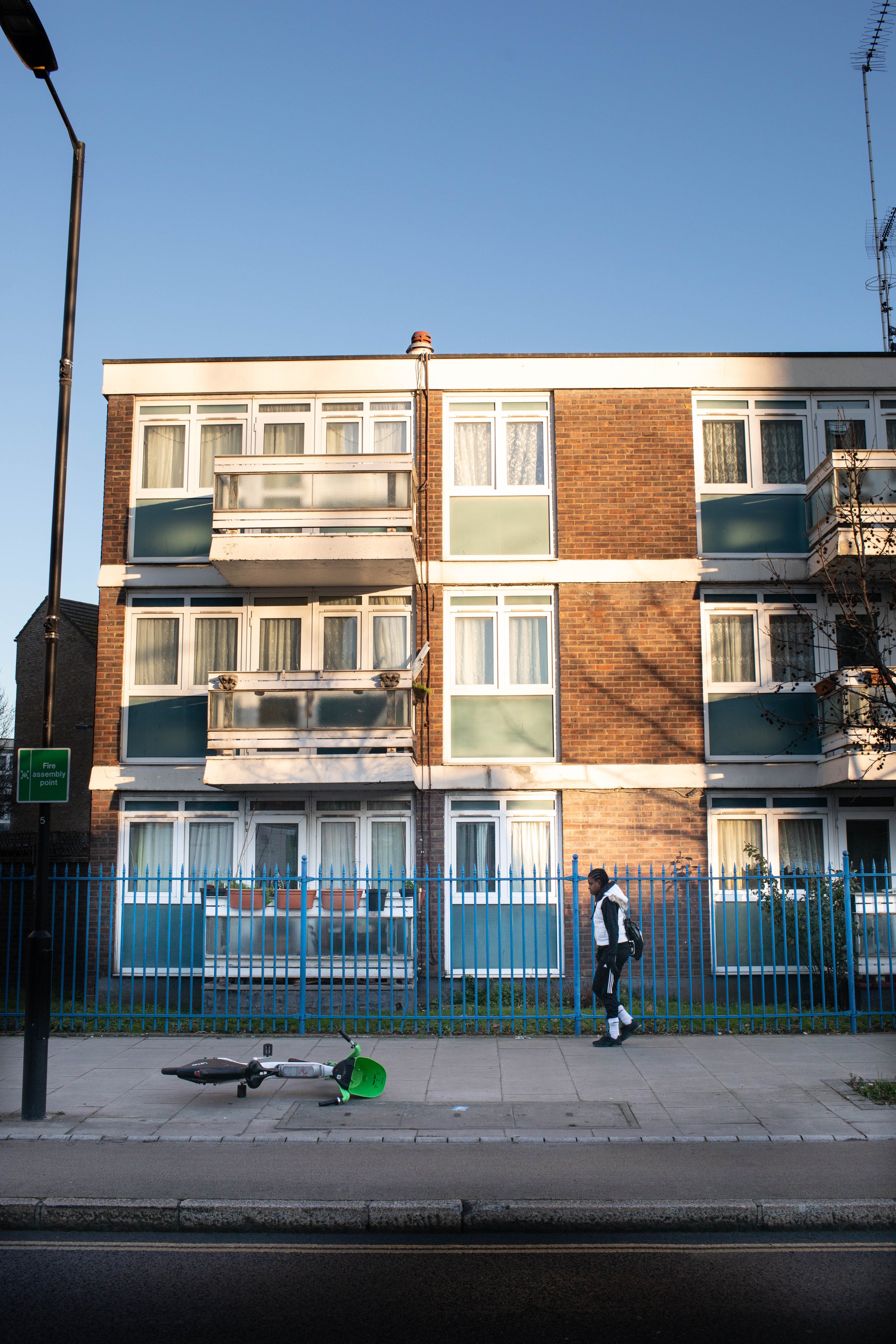Future of Mobility: E-bike Convenience trumps comfort for busy Londoners– but for how long?

Findings report on the London commuter experience of e-bike services: anti social users and poor treatment of e-bikes dampens the experience and raises some safety concerns, but to most commuters convenience is too valuable to switch to more long-term ownership models.
In a world with the simultaneous needs of urban mobility and climate awareness, shared ownership (be it for cars or micro-mobility options) is emerging as a key solution. But the core issue to examine within shared ownership models is the implicit awkward truth that people treat their own belongings with more care than “shared” amenities.
But what does this mean for the myriad micromobility brands in this space? During our investigation, (which included consumer voxpops, expert interviews and photojournalism), the main problem uncovered is ebikes being damaged by “antisocial users”-- from intoxicated professionals to bored teens;
“I think it's just people at night just drunk and being idiots, seeing something that they can easily just push over and being stupid. I don't think there's any more to it than that. I think it's also just probably boredom, you know, people just seeing something that they can just damage without really much in the way of, you know, feeling like they're going to get into any trouble for doing it.”
Though companies like Lime have tried to implement precautions to protect the ebikes, like a sobriety test in-app and security measures to stop stealing, the damage is still noticeable. Some of the consumers interviewed brought up the concept of free ebike rides for under 18s to dissuade younger users from breakhacking the ebikes;
“I think a lot of the younger kids stealing these bikes need them, maybe even go to school in the mornings, when they’re under 18. I don't think Lime would lose too much money letting students use them for free.”
But this raises questions on how to implement such a policy. There is also the social question around whether the breaking of ebikes isn’t a matter of accessibility, but deliberate vandalism for fun or status. So how far, and for how long will this issue remain before users stop paying for ebike services? How much should these brands be working to counter the issue?
There is a core understanding by the general public that shared mobility means risking the quality of the product simply because other people are using it. In the words of one of our participants “I’m not sure that people treat the Lime bikes as well as they would if it were their e-bike.” However when questioned on solutions to this, respondents did not have much to say, beyond that their main concern was the viability of those e-bikes. Only the bikes themselves being unsafe to ride could dissuade users from using them.
When questioned about alternative Bike schemes, for instance the Brompton foldable bikes participants stated that although “Air BnB-ing” a bike sounds good, what really draws them to ebike services is the convenience. You can find them all over the place and they are easy to park and leave secured, a no-strings attached ebike option (unlike owning your own where you have to secure it and then risk it being stolen). A Brompton bike, though you avoid the less savoury elements of shared ownership like other users damaging it, users still need to fold and carry it on trains and the underground. This does not appeal since most commuters have to use the tube at rush hour as a key stage of their commute and a heavy folded ebike would be cumbersome.
In fact, the convenience of not having to carry around one of the rented ebikes is a key factor for their appeal, as you can simply use them for what you need, then leave them somewhere (paying a higher fee if not inside a reserved bay). We know from previous mobility research projects that convenience, particularly in the work commute, is the deciding factor of option choice for users, and at their current saturation in London ebikes are more convenient than they have ever been– however without thorough maintenance and oversight, once these new ebikes start to show wear and tear and damage the experience and safety of riders, we may just see more abandoned ebikes on city pavements.
Street Interviews with Limebike users
Words by: Victoria Landell Mills
Photography and Filming by: Nicole Harris and Helene Jeunet







